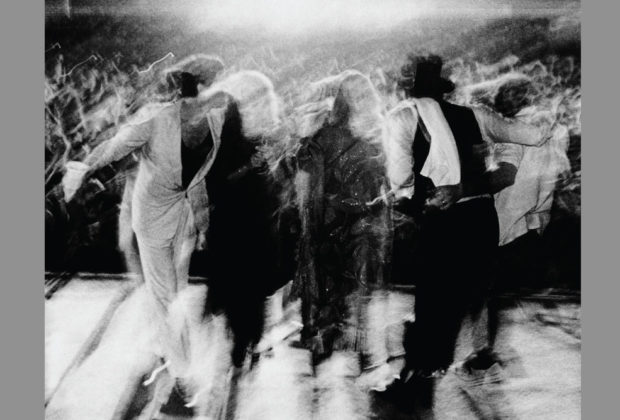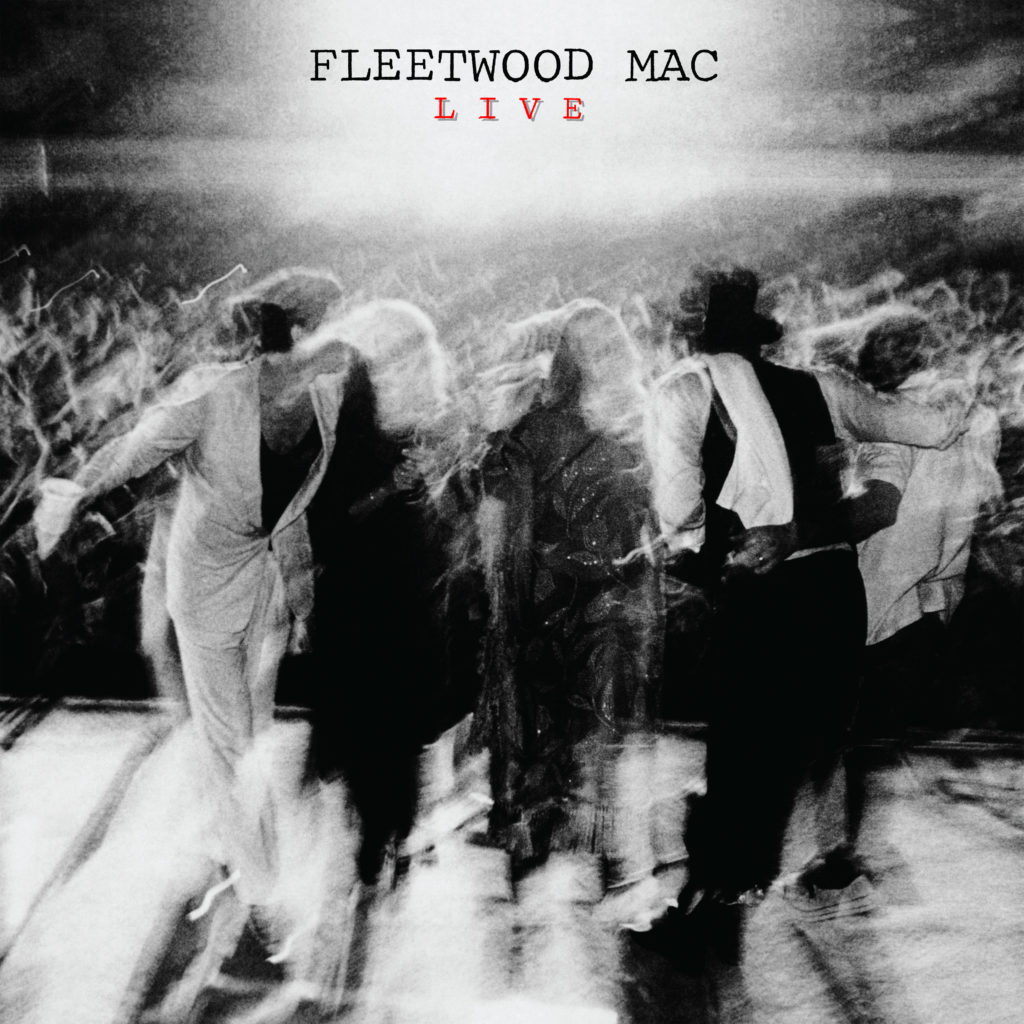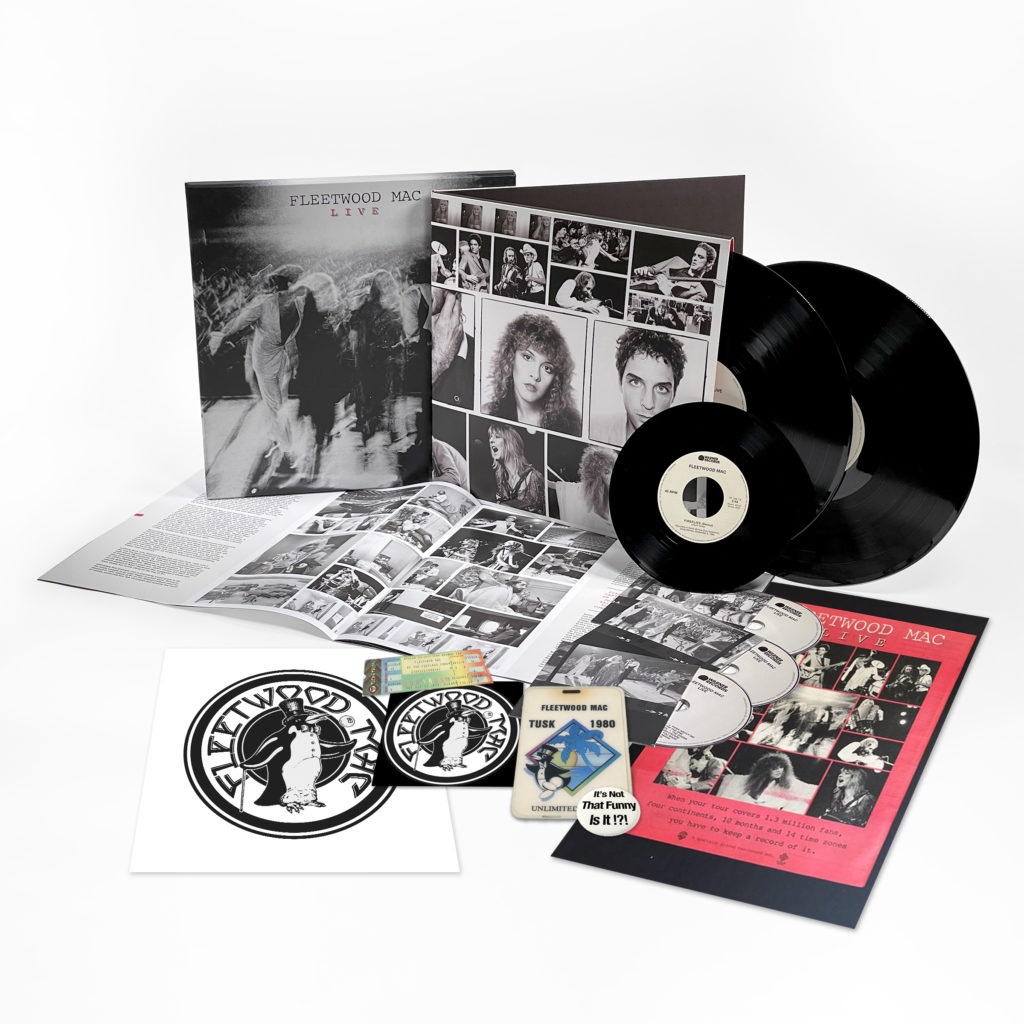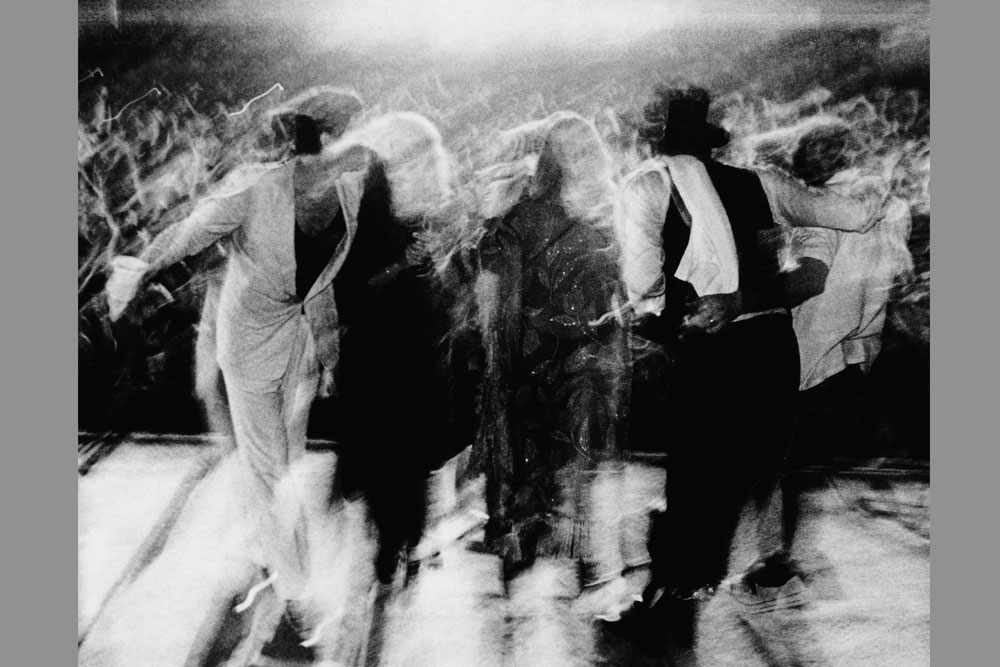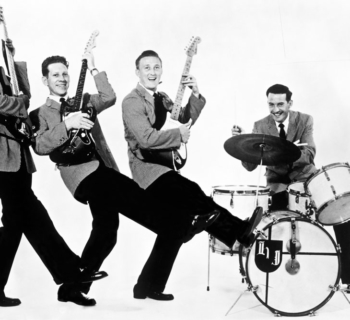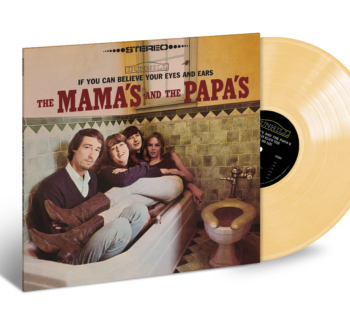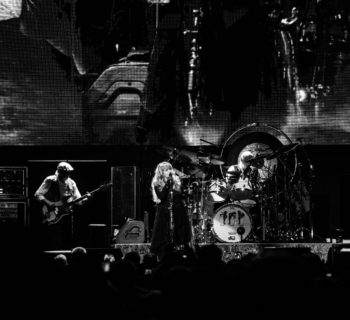When Fleetwood Mac released its first live album in December 1980, it captured the legendary band’s most iconic lineup on stage demonstrating the full scope of their collective, creative powers. Recorded mostly during the world tour for Tusk, Fleetwood Mac Live delivered a double-album’s worth of performances that included massive hits like “Dreams” and “Go Your Own Way,” “Rhiannon,” and “Don’t Stop.”
Rhino gives the band’s live debut a much-deserved encore with a new 3-CD/2-LP collection that features a remastered version of the original release on both 180-gram vinyl and CD, plus more than an hour of unreleased live music recorded between 1977 and 1982 on the third CD. The set also includes a bonus 7-inch single featuring previously unreleased demos for “Fireflies” and “One More Night.”
FLEETWOOD MAC LIVE: SUPER DELUXE EDITION will be available from Rhino on April 9 for $99.98.
A special “Tour Edition” is also available for pre-order exclusively at the Rhino.com store for $109.98. Limited to 1,000 copies, the “Tour Edition” features the 3-CD/2-LP/7-inch collection plus replica ephemera from the era including a ticket, backstage pass, ad, button, sticker, and iron on patch.
This Super Deluxe Edition is presented in a 12 x 12 rigid slipcase and comes with a liner note booklet, rare photos and artifacts along with the full itinerary for the Tusk Tour, plus a history of the live album.
The majority of the original album was recorded live between 1979 and 1980, save for a few exceptions: “Don’t Let Me Down Again,” was recorded in 1975 during the tour for Fleetwood Mac; Dreams” and “Don’t Stop” are from the band’s sound check in Paris; while “Fireflies,” “One More Night,” and a cover of the Beach Boys’ “Farmer’s Daughter” were all recorded in California during a special show for the band’s crew, family, and friends.
The 14 live tracks that debut on the Super Deluxe Edition span a wider range of time than those on the original release. They include seven songs from the Tusk tour (1979-80), four from the Rumours tour (1977) and three from the Mirage tour (1982). These stellar additions include live versions of “Tusk,” “Gold Dust Woman,” and “Songbird,” plus “The Green Manalishi (With The Two-Pronged Crown)” – a song written in 1970 by guitarist Peter Green, who founded Fleetwood Mac with Mick Fleetwood and Jeremy Spencer in 1967.
FLEETWOOD MAC LIVE: SUPER DELUXE EDITION
3-CD/2-LP plus bonus 7-inch single
Original Album Remastered
CD Track Listing
Disc One: Original Album Remastered
1. “Monday Morning”
2. “Say You Love Me”
3. “Dreams”
4. “Oh Well”
5. “Over & Over”
6. “Sara”
7. “Not That Funny”
8. “Never Going Back Again”
9. “Landslide”
Disc Two: Original Album Remastered
1. “Fireflies”
2. “Over My Head”
3. “Rhiannon”
4. “Don’t Let Me Down Again”
5. “One More Night”
6. “Go Your Own Way”
7. “Don’t Stop”
8. “I’m So Afraid”
9. “The Farmer’s Daughter”
Disc Three
1. “Second Hand News” *
2. “The Chain” *
3. “Think About Me” *
4. “What Makes You Think You’re The One” *
5. “Gold Dust Woman” *
6. “Brown Eyes” *
7. “The Green Manalishi (With The Two-Pronged Crown)” *
8. “Angel” *
9. “Hold Me” *
10. “Tusk” *
11. “You Make Loving Fun” *
12. “Sisters Of The Moon” *
13. “Songbird” *
14. “Blue Letter” *
Bonus Track
15. “Fireflies” – Remix - Long Version
Original Album Remastered
LP Track Listing
LP One: Side One
1. “Monday Morning”
2. “Say You Love Me”
3. “Dreams”
4. “Oh Well”
5. “Over & Over”
LP One: Side Two
1. “Sara”
2. “Not That Funny”
3. “Never Going Back Again”
4. “Landslide”
LP Two: Side One
1. “Fireflies”
2. “Over My Head”
3. “Rhiannon”
4. “Don’t Let Me Down Again”
5. “One More Night”
LP Two: Side Two
1. “Go Your Own Way”
2. “Don’t Stop”
3. “I’m So Afraid”
4. “The Farmer’s Daughter”
Bonus 7-Inch Single
A. “Fireflies” – Demo *
B. “One More Night” – Demo *
During 2019 I was interviewed by director Matt O’Casey for his BBC4-TV digital arts channel programme Christine McVie, Fleetwood Mac’s Songbird.
The cast included Christine McVie, Stan Webb of Chicken Shack, Mick Fleetwood, Stevie Nicks, John McVie, Heart’s Nancy Wilson, Mike Campbell, Neil Finn, and producer Richard Dashut. The premiere broadcast was in September 2020.
In the June 12, 1976 issue of the now defunct Melody Maker, the UK music weekly, I interviewed Fleetwood Mac co-founders Mick Fleetwood and John McVie for a feature story. I also attended several recording sessions when the band was cutting Rumours in West Hollywood at Larrabee studios.
Since their inception, Fleetwood Mac in several incarnations was always popular in the Southern California market on influential FM radio stations. They played at the Whisky A Go Go in 1970 and ‘71, and served as a support act for headliners on arena and stadium shows the first half of the seventies.
So I think now it’s appropriate to re-visit my first journalistic encounter with the Fleetwood Mac principals coinciding with their upcoming spring 2021 product.
Fleetwood Mac: Bounces Back, June 12, 1976 Melody Maker.
THE LAST YEAR has brought Fleetwood Mac a platinum LP – Fleetwood Mac – their eighth album for Reprise records, from which two top ten singles, “Over My Head” and “Rhiannon,” have been culled.
Last week, months after its release, Fleetwood Mac was still lodged at number five in the American chart. Fleetwood Mac exemplify the notion that if you stick around and work hard enough, success is bound to happen.
Initially a by-product of the John Mayall School of Blues, circa '67, personnel changes, coupled with the growing sophistication of seventies audiences, has shifted the emphasis of their music from a British Rock pose to a "soft" song style reflecting the languid life of Southern California, where they now reside.
Enter tall and lanky drummer Mick Fleetwood. Sixteen months ago, when Bob Welch, after a four-year stint with the Mac, was leaving to form another group (later to be called Paris) Fleetwood ran into a guy at a supermarket.
"He told me about a studio, Sound City in Van Nuys,” recalls Fleetwood in an interview. “I went out there, since I was looking for a studio to do our next album, and they played me a tape of Stevie Nicks (female vocalist) and Lindsey Buckingham (guitars, vocals) which they had done a couple of years ago.
"At the time I made a mental note about them, and soon after made a phone call to them asking if they wanted to join."
The two recruits brought new influences and stylistic direction, Buckingham contributing a harder rock sound, and Nicks providing a second female voice which allowed greater scope for harmonies.
"They called up and said, 'do you want to do an album together?" remembers Stevie Nicks, then working as a waitress at Clementine's, a Beverly Hills singles joint. "Lindsey and I said, 'are you kidding?' and joined." Buckingham was then punching the clock in the advertising world after the flop of their joint debut Polydor album, Buckingham-Nicks.
One of the reasons for Fleetwood Mac's current success is that they've always been a working group, but they had to make huge efforts to re-establish themselves after the “fake” Fleetwood Mac episode.
The band's former manager Clifford Davis, put an ersatz Fleetwood Mac band on the road and lined up a series of appearances. But, after much dispute, the real Fleetwood Mac, i.e. the one containing original members, won an injunction prohibiting the ex-manager from using the group's name. The suits and counter-suits are still pending.
"We had to keep working and touring to establish our credibility. Musically, the band on record and live has always been fairly effective," says bassist John McVie.
"There's more room to stretch out, and it's more fun to play now. There's only so many ways you can play 12-bar blues, but I never felt restricted, and there's never been a conscious change in musical direction. The last album was more melodic, though, and we were able to bounce off harmony structures and ideas."
“Over My Head” was a monster hit in America. "We would never have picked 'Over My Head' as a single," Christine McVie said recently. But the radio stations did, and “Rhiannon,” the next 45, cemented a relationship with the important AM audience that Fleetwood Mac has been seeking in the States for years.
"People come up to me every place we play and tell me what an effect “Rhiannon” has had on their lives; as if it has some spiritual power over them," offers Nicks, whose tune about a Welsh witch, written two years earlier, is never off United States radio. Onstage, she is a focal point, and enlivens Mac's past low-profile performances.
"The success of the last album went beyond my wildest expectations," admits Fleetwood. "I mean, we were confident that we had made a dynamite recording, and felt a hell of a lot of new energy and dimension from Stevie and Lindsey.
"We concentrated on the US. In the States our albums pretty much sold in the 200-250,000 range. We were always appreciated and we never lost anyone. The cult kept growing. Wide scale acceptance has always been around the corner. We started here at the club level and worked all the way up through small halls, second and third billings, headline status, and some outdoor things."
"We've always kept a low profile and away from hype," explains McVie. "That's the way we are as people. That was the only conscious thought about the band. We never wanted to be viewed or reported as the biggest thing since sliced bread.
"Me, Chris (McVie) and Mick have been working for a long time. We've eaten every day and had money for smokes. I'm proud we pushed ahead. The success now makes some justification for the effort of the past."
But there's an incredible dichotomy between their status in America and in England.
"What happened," suggests Fleetwood "is that the band was really a big band in England when Peter (Green) was in the band. We had hits, and everybody in the group was nurtured, and the people became possessive over the players.
"We started working less over there and more over here, even when Peter was in the group. People lost a grip on something that had been very intense. We started getting a following over here, and the band has been evolving since. Hopefully, towards the end of the year, if we do a European/English tour, they'll get a taste of the band, and I think they'll really like it."
McVie: "We moved here two and a half years ago. We moved after spending nine months in a lawyer's office, going through all the legal trips, Obviously, Los Angeles was the place to go. The record company was here, and communication is easier in America. We had to get out of England 'cause we were going crazy. We were driving up to London every day and spending all our time in an office."
"I think one day John and I will write a book on what's gone down," grins Fleetwood. "The only problem is that no one will believe us," shrugs McVie.
"John and I have been through some unbelievable moral/mental decisions," says Fleetwood. "But we never wanted to kick it. Perseverance and work kept Fleetwood Mac together and a lot of people before us gave up, sayin' this isn't worth it."
"We did interviews with Newsweek and People magazine recently," smiles McVie. "It's funny being on the same page next to a big article on Jimmy Carter. We're reaching audiences that never heard of Fleetwood Mac, and it's good to have finally gotten away from questions like, 'whatever happened to Peter Green or Jeremy Spencer?' If Mick and I write the book, most people would think it was a science fiction story."
"People tell me all the time they hear our songs and old LPs on the radio. It's a buzz and a beautiful feeling to be discovered and rediscovered," says the likeable Fleetwood.
Indeed, the very tentative title for the next album is Yesterday's Gone, also the title of one of the songs.
"This album reflects every trip and breakup," says Fleetwood. "It isn't a concept thing, but when we sat down listening to what we had, we realized every track was written about someone in the band. Introspective and interesting, kind of like a soap opera. The album will show sides of people in this group that were never exposed before."
"What I'd like to do with Fleetwood Mac," McVie interjects, "is to work out a three-hour history of the group with an intermission which will cover material from all of our career."
Harvey Kubernik is the author of 19 books, including This Is Rebel Music, Canyon Of Dreams: The Magic And The Music Of Laurel Canyon and Turn Up The Radio! Rock, Pop and Roll In Los Angeles 1956-1972. Sterling/Barnes and Noble in 2018 published Harvey and Kenneth Kubernik’s The Story Of The Band: From Big Pink To The Last Waltz. For September 2021 the duo has written a multi-narrative volume on Jimi Hendrix for Sterling/Barnes and Noble.
Otherworld Cottage Industries in 2020 published Harvey’s book, Docs That Rock, Music That Matters, featuring interviews with D.A. Pennebaker, Chris Hegedus, Albert Maysles, Murray Lerner, Morgan Neville, Dr. James Cushing, Curtis Hanson, Michael Lindsay-Hogg, Andrew Loog Oldham, Dick Clark, Ray Manzarek, John Densmore, Robby Krieger, Travis Pike, Allan Arkush, and David Leaf, among others.
This century Kubernik wrote the liner note booklets to the CD re-releases of Carole King’s Tapestry, Allen Ginsberg’s Kaddish, Elvis Presley The ’68 Comeback Special and The Ramones’ End of the Century). Harvey and Andrew Loog Oldham wrote the liner essays to The Essential Carole King.
In November 2006, Harvey Kubernik was a speaker discussing audiotape preservation and archiving at special hearings called by The Library of Congress and held in Hollywood, California.
Kubernik’s writings are in several book anthologies, The Rolling Stone Book Of The Beats and Drinking With Bukowski. Harvey penned a back cover endorsement for Michael Posner’s book on Leonard Cohen that Simon & Schuster, Canada published in 2020, Leonard Cohen, Untold Stories: The Early Years.
During 2020 Harvey Kubernik served as a Consultant on the 2-part documentary Laurel Canyon: A Place in Time directed by Alison Ellwood. Kubernik is currently working on a documentary about Rock and Roll Hall of Fame member singer/songwriter Del Shannon.
Harvey is also spotlighted for the 2013 BBC-TV documentary Bobby Womack Across 110th Street, directed by James Meycock. Womack, Bill Withers, Ronnie Wood of the Rolling Stones, Damon Albarn of Blur, the Gorillaz and Antonio Vargas are featured.
Kubernik was interviewed last decade by director/producer Neil Norman for his GNP Crescendo documentary, The Seeds: Pushin’ Too Hard. Jan Savage and Daryl Hooper original members of the Seeds participated along with Bruce Johnston of the Beach Boys, Iggy Pop, Kim Fowley, Jim Salzer, the Bangles, photographer Ed Caraeff, Mark Weitz of the Strawberry Alarm Clock and Johnny Echols of Love. Miss Pamela Des Barres supplied the narration. Debut broadcast on television will be in 2021.
This decade Harvey was filmed for the currently in-production documentary about former Hollywood landmark Gold Star Recording Studio and co-owner/engineer Stan Ross produced and directed by Brad Ross and Jonathan Rosenberg. Brian Wilson, Herb Alpert, Richie Furay, Darlene Love, Mike Curb, Chris Montez, Bill Medley, Don Randi, Hal Blaine, Shel Talmy, Richard Sherman, Don Peake, Kim Fowley, Johnny Echols, Gloria Jones, Carol Kaye, Marky Ramone, David Kessel and Steven Van Zandt have been lensed.

